











Welcome to Assam Down Town University's Faculty of Humanities and Social Sciences, where we believe in nurturing minds and shaping futures. We are excited to announce that our BA Honours programsis spanning a wide range of disciplines. For those with a creative spark, are offering courses in Fine Arts, Theatre Arts, Digital Design, and Culinary Arts. For those who see their future in the dynamic world of media and communication, we are offering courses in Communication, Digital Media Communication, and Journalism and Mass Communication. If you envision yourself making a difference in societal structures and human behaviour, our Sociology and Public Administration courses are of definite interest. We are also be offering courses in English and Economics for those who see their future in exploring literature or economic theories and principles. For those who see themselves thriving in the field of data analysis and interpretation, our Statistics and Data Science course can be an ideal choice. Upon completion of these BA Honours programs, students will find themselves prepared for a wide range of career options. These include roles as a teacher, content writer, banker, lawyer, political analyst, journalist, communicator, human resource manager, and many more. The syllabus for each BA Honours course is tailored to the chosen specialization, ensuring a focused and comprehensive learning experience. In the context of India's rapidly evolving job market, these courses are designed to train students with the skills needed for emerging roles and industries. From digital design to data science, our courses align with the demands of the digital age. Moreover, courses like Public Administration and Sociology are crucial for understanding and addressing societal challenges, making them highly relevant in today's world. We invite you to join us and be a part of our vibrant academic community, where we promise to learn, grow, and make a difference together. Let's shape the future, one course at a time.
Year wise Course Details
Courses for this semester
This course aims to introduce students to various literary forms including prose, poetry, and short stories, while enhancing reading comprehension skills through tailored exercises. It also covers grammar topics such as voice change and determiner use to refine language mechanics and style. The course aims to develop in students a critical approach to literary analysis, improve their language mechanics, and foster a heightened appreciation for storytelling in diverse literary forms.
This course is an introduction to the study of how individual impacts and is affected by the social context in which they live. It is about the scientific study of the relationships, groups, society, and world in which the individual lives. Topics to be emphasized include culture, socialization, institutions, deviance and social control, social inequality and stratification and globalisation.
This course covers digital marketing strategies and techniques. It focuses on using digital platforms and social media to reach target audiences, build brand awareness, and drive engagement. It provides scope to learn about content creation, social media management, online advertising, analytics, and campaign optimization. The course includes case studies, hands-on projects, and simulations to develop practical skills for digital marketing roles.
This course explores recent global events and their far-reaching implications across politics, economics, science, and culture. Designed to deepen understanding of contemporary issues, the course encourages active discussion and analysis of current affairs while fostering critical thinking skills. Students will develop strategies for staying informed about major developments around the world, enhancing their general knowledge and awareness of the forces shaping today's global landscape.
AdtU encourages a range of activities outside the regular curriculum intended to meet learner’s interest, These activities are aimed to develop the social and soft skills and promote a holistic development of the learners, Keeping in mind the 360 degree learning methodology the students are engaged in different activities headed under different clubs viz. Dance, music, photography, drama, literary etc., The students are encouraged to participate in regular club activities, workshops, competitions as per their interest and hobbies, The student members of the club are trained represent AdtU in various inter University student and national level competitions, Renewed personalities are invited to conduct workshops that benefit the members and students by giving them the platform to learn from experts in the respective fields.
This course presents some important vignettes of a complex, highly diverse India that is also witnessing unprecedented changes since its formal independence in 1947 from Great Britain. The lectures revolve around social dimensions of change, the continuing influence of ancient texts on contemporary India, political democracy, economic transition from the state to the market, gender relations, India's economic globalisation and changing world view.
The course examines the intricate relationship between language and politics, focusing on how language policies influence and are influenced by political conflicts. It explores the ways in which language can be a powerful tool for both unity and division within societies. The course delves into the historical, sociopolitical, and cultural contexts of language planning and language policy, highlighting the role that language plays in identity, power dynamics, nationalism, and social integration.
Courses for this semester
This course provides a comprehensive exploration of literature, grammar, and writing skills spanning various genres and linguistic elements. By studying a diverse range of prose, poetry, essays, and letters, students will immerse themselves in timeless works and linguistic techniques, enriching their understanding and proficiency in English. The course aims to enhance critical thinking abilities, elevate writing proficiency, and foster a deeper appreciation for the intricacies of the English language.
This course focuses on developing advanced skills in computer applications, covering a range of essential topics. Students will master spreadsheet applications, using complex functions for data manipulation, financial modeling, and data analysis. They will learn to design and manage databases, creating tables, performing queries, and generating reports while understanding core database concepts. The course also introduces foundational web development skills, including HTML, CSS, and basic scripting, to create effective web pages.
This course provides a comprehensive introduction to the fundamental concepts of Psychology, tracing its origins and development. Students will explore the processes of attention and perception, gaining insight into how individuals perceive and interpret their surroundings. The course covers essential theories of motivation, helping students articulate different motivational frameworks and their applications.
This course is designed to provide a solid foundation in statistical analysis, focusing on both theory and practical application. Students will understand fundamental statistical concepts and techniques, applying them to analyze and interpret real-world data. The course emphasizes the use of statistical software for effective data analysis and visualization, enabling students to present findings clearly.
This course provides an introduction to the essential principles of food safety and hygiene. Students will learn proper food handling, preparation, and storage techniques to ensure food quality and safety. The course focuses on identifying and controlling potential food hazards, emphasizing the importance of effective sanitation practices in food service environments.
This course explores the origins, development, and future of human language. We will investigate the evolutionary, cognitive, and social factors that have shaped language, examining its transformation from prehistoric communication systems to the diverse linguistic landscapes of today.
The students will be engaged in different activities headed under different clubs namely dance, music, photography, drama, literacy, etc. The students will participate in regular club activities like workshops, competitions as per their interest and hobbies. The students will be trained to represent ADTU in various inter university, state and national level competitions. The students will be given a platform to earn from invited experts in their respective fields. The students will get an exposure of 360 degree learning methodology considering the overall growth along with the academics.
Courses for this semester
This course offers foundational mathematics essential for studying economic theory at the undergraduate level, including courses in microeconomic theory, macroeconomic theory, statistics, and econometrics. It introduces important economic models and demonstrates how mathematical techniques can be broadly applied to economic theory.
This course introduces students to the foundational principles of microeconomic theory, emphasizing the development of an economist's analytical mindset. Additionally, it demonstrates the practical application of microeconomic concepts in the analysis of real-life scenarios.
This course delves into the rich traditions of Indian sociological thought, tracing its origins to the formal introduction of sociology as a discipline in Bombay University in 1914. It examines the ongoing debates around the indigenization of Indian sociology and its relationship with Western frameworks. By focusing on key themes such as tradition and modernity, caste, tribe, and gender, the course provides an in-depth exploration of the contributions of prominent Indian sociologists.
This course explores the sociological dimensions of rural and urban life, examining their unique characteristics, structures, and interrelations. It delves into the historical evolution of rural and urban societies, highlighting key sociological theories and concepts that help explain the dynamics of these environments. Topics include rural social structures, urbanization, migration, rural-urban linkages, and the challenges arising from rapid urban growth and rural transformation.
This course focuses on the intricate dynamics of familial relationships, marriage systems, and kinship structures across cultures and societies. Through a multidisciplinary approach, students explore the evolution of family units, variations in marital practices, and the role of kinship in shaping social organization. Topics include family diversity, gender roles, inheritance patterns, and the impact of globalization on traditional kinship systems. Emphasis is placed on critical analysis, cultural relativism, and understanding the complexities of intimate relationships within broader social contexts.
This course provides a comprehensive exploration of literature, grammar, and writing skills spanning various genres and linguistic elements. By studying a diverse range of prose, poetry, essays, and letters, students will immerse themselves in timeless works and linguistic techniques, enriching their understanding and proficiency in English.
The course aims to cultivate the importance of effective writing and communication, promoting the importance of delivering clear and concise message. This course promotes clear and organized writing, improving the techniques of comprehension and retention of information.
This course explores the dynamics of communication across cultural and political contexts. It delves into the theories, practices, and challenges involved in fostering effective communication in diverse and often polarized environments. Students will analyze the role of culture, identity, power, and media in shaping political discourse and global interactions, equipping them to navigate complex intercultural and political landscapes.
This course explores the principles and practices of conveying ideas, information, and messages through visual mediums. This course covers design fundamentals, visual storytelling, branding, and multimedia tools. Students will engage with various formats such as graphics, photography, typography, and digital media to develop their ability to communicate effectively through visuals.
This course on Indian Administration and Public Policies provides a comprehensive exploration of the governance landscape in India, encompassing the historical evolution, constitutional framework, and contemporary dynamics of administrative structures and policy-making processes. Students develop a nuanced understanding of governance challenges and opportunities in India, equipping them with the knowledge and skills to engage meaningfully in policy discourse and decision-making processes.
This course on Indian Polity and Governance offers a comprehensive exploration of the foundational principles, institutional frameworks, and contemporary dynamics of governance in India. From the historical underpinnings of the Constitution to the intricacies of administrative machinery and policy-making processes, students gain insight into the complexities and challenges of governing the world's largest democracy.
This course delves into the rich tapestry of India's history from ancient civilizations to the struggle for independence. It charts the trajectory of Indian society, politics, and culture, examining pivotal moments such as the Mauryan Empire, Mughal rule, and the colonial era. The course further explores the evolution of the Indian National Movement, highlighting the diverse ideologies and strategies employed by leaders like Mahatma Gandhi and Subhas Chandra Bose in the quest for freedom. Through comprehensive analysis and reflection, students gain a profound understanding of India's past and the enduring legacy of its struggle for self-determination.
This course introduces the basics of art, including lines, shapes, colours, and textures to the students. They discover design principles, such as, balance and contrast. Through exploring various techniques like drawing and painting, students explore their preferred methods of artistic ex<x>pression. Additionally, they delve into art history, studying different movements and significant artists. This course aims to foster creativity and problem-solving skills, helping students develop their own unique artistic style while gaining a deeper appreciation for art.
The course covers Indian art from pre-historical times to contemporary practices, emphasizing the evolution of various art forms including sculptures, paintings, architecture, and monuments. This course allows students to appreciate the significance of art within its socio-political and cultural contexts
The course begins with an introduction to the fundamentals of dance, drama, and music, examining their roles in cultural expression and communication. Students will learn about the historical evolution of these art forms and their significance in various societies.
The course is an introductory course designed to familiarize students with the foundational elements of acting. This will guide students in understanding their unique acting styles and character types.
This course introduces the students to the basic aspects of human communication and especially mass communication. They will also be taught to the traditional modes of communication in India. With this basic grounding in place, students will be able to evaluate mass media within a wider context. They will be taught by using various teaching aids such as case studies, practical exercises, class presentations, screenings, and reading groups.
This course introduces the core principles and techniques of graphic design. It focuses on developing a strong foundation in design elements such as color, typography, layout, and imagery. Participants explore how these elements come together to create visually compelling and effective communication materials across various media.
This course provides an introduction to the techniques and tools of digital illustration. It emphasizes developing creativity and technical skills to create visually engaging illustrations using digital tools. Participants will learn about drawing principles, color application, composition, and storytelling through visuals. The course focuses on combining artistic expression with technology to produce illustrations for various applications, including media, advertising, and entertainment.
Courses for this semester
This course aims to introduce the basic concepts of Macroeconomics. This course discusses the preliminary concepts associated with the determination and measurement of aggregate macroeconomic variable like savings, investment, GDP, money, inflation, and the balance of payments. These concepts help tom develop a deeper understanding of the macroeconomic landscape and its implications for economic policies and decision-making processes.
This course offers a comprehensive introduction to the fundamental principles and language of statistical inference and analysis in economics. It covers the concept of sampling distribution, drawing on statistical reasoning and probability theory. Additionally, the course introduces concepts such as point and interval estimates in statistical inference, providing students with a solid foundation in statistical reasoning and analysis.
This course provides a sociological exploration of health, focusing on how societal factors influence health outcomes and perceptions. Students will examine the interrelationship between society and health, addressing community health issues with a focus on social determinants. The course will also analyze hospitals as social institutions, highlighting their functions within society.
This course provides a comprehensive examination of key concepts in political sociology, focusing on political culture, socialization, and participation. Students will explore the significance and dimensions of these concepts, as well as the agencies involved. Additionally, the course will analyze the roles of political parties and pressure groups in shaping the political process.
This course provides an in-depth exploration of gender dynamics, aiming to sensitize participants to issues of gender inequality, discrimination, and bias prevalent in society. Through critical analysis of theoretical frameworks and real-world case studies, students will examine the intersectionality of gender with other social identities such as race, class, and sexuality. The course fosters dialogue and reflection to promote empathy, awareness, and advocacy for gender equity and social justice.
The course introduces students to thought-provoking essays, short stories, poems, and plays that encourage critical thinking and cultural awareness. Alongside literary exploration, the course emphasizes practical language skills, such as grammar, vocabulary, and effective communication, equipping students for academic and professional success.
This course offers a comprehensive exploration of English communication theory, from foundational concepts to advanced applications. Students delve into verbal and nonverbal dynamics, interpersonal theories, organizational and media communication frameworks, and intercultural communication in a global context. Through critical analysis and practical exercises, students gain the skills needed to navigate diverse communication challenges effectively.
The course is is designed to enhance students' proficiency in the English language through interactive and technology-driven activities. This course focuses on improving listening, speaking, reading, and writing (LSRW) skills in a structured environment. With access to advanced tools and resources, students engage in practical exercises that develop linguistic accuracy, fluency, and confidence for academic and professional contexts.
The course gives the scope to explore the relationship between language and culture, highlighting the role of language in shaping identity and heritage. It gives an overview of linguistics as a field of study, exploring the structure and functions of language in human societies. It also provides a detailed overview of the linguistic diversity and complexity, introducing the major language families represented in India.
This course explores the principles, policies, and practices of managing human resources in public sector organizations. It delves into the role of personnel administration in fostering effective governance and ensuring efficient public service delivery. Topics include recruitment, selection, training, performance appraisal, labor relations, and ethical considerations in public personnel management. The course also examines contemporary challenges such as workforce diversity, employee motivation, and the impact of technology in public administration.
This course examines the intersection of social justice principles and international relations, focusing on the global challenges of inequality, human rights, and sustainable development. It explores the theoretical foundations of social justice and their application to international issues such as poverty, gender equity, migration, climate change, and global governance.
This course provides a scope to explore the rich cultural traditions of both Indian and Western artistic styles. It introduces to the unique characteristics and influences of each tradition, from classical Indian art to Renaissance masterpieces. Through studying key artworks and artists, students gain a deeper understanding of the historical, social, and religious contexts that shaped these artistic movements. The course fosters appreciation for the diversity and complexity of artistic expression across cultures. By comparing and contrasting Indian and Western art, students develop critical thinking skills and a broader perspective on global artistic heritage.
This course provides a comprehensive exploration of various subjects essential for the General Studies Paper II of the APSC (Assam Public Service Commission) and UPSC (Union Public Service Commission) examinations. Topics include governance, constitution, polity, social justice, and international relations. Through a combination of lectures, discussions, and practice tests, students will develop a deep understanding of key concepts, current affairs, and analytical skills necessary for success in these competitive examinations.
The course is designed to explore the expressive potential of the human body as a vital tool for storytelling and performance. It focuses on physicality, movement dynamics, and spatial awareness, enabling students to connect deeply with their characters and the theatrical environment.
The course is an introductory course to the art and craft of directing for stage and screen. It offers students foundational knowledge of the director's role in shaping and executing a creative vision. It covers essential aspects such as script analysis, conceptualization, staging, visual storytelling, and collaboration with actors and technical teams.
The course introduces the intersections of gender, performance, and representation in both theoretical and practical contexts. It examines how gender identities are constructed, performed, and perceived in society, theatre, and media.
This course introduces digital photojournalism, covering its history, principles, techniques, and ethical considerations. Students learn about the evolution of photojournalism, the role of digital technology in contemporary storytelling, and the legal and ethical frameworks that govern journalistic practice. The course also focuses on mastering digital photography skills, using Photoshop for editing and enhancement, crafting effective captions, and executing photojournalistic assignments.
This course offers the opportunity to explore the intersection of digital media technologies and storytelling techniques. Students learn how to create compelling narratives using digital tools and platforms, including social media, multimedia content, and interactive storytelling formats.
This course focuses on the essential principles and techniques for creating impactful logos. It explores the role of logos in brand identity, guiding participants through the process of conceptualizing, designing, and refining logos that effectively communicate a brand's message.
Courses for this semester
The course aims to equip students with the knowledge, skills, and ethical understanding necessary to excel in data journalism, from sourcing and analyzing data to crafting compelling narratives and presenting information visually through data visualization.
The course is designed to provide students with a comprehensive understanding of the various aspects of the audio-video production industry. Through a series of structured units, students study the historical, theoretical, and practical elements of film and television production, alongside emerging trends in digital media distribution. Overall, the course aims to equip students with the necessary knowledge, skills, and creative abilities to succeed in the dynamic field of audio-video production, filmmaking, and editing.
This course is designed to provide students with a comprehensive understanding of the key principles, strategies, and techniques used in contemporary digital marketing practices. Through a series of structured units, students get a scope to explore various aspects of digital advertising, content creation, social media marketing, and search engine optimization (SEO).
This course provides a foundational understanding of creating and manipulating computer graphics for interactive applications. Participants learn about the principles of computer graphics, including 2D and 3D rendering, animation, and user interaction.
This course introduces and helps to explore the alternative conceptions of development and their justifications. It covers aggregate growth models and includes cross-national comparisons to evaluate these models. The course uses the axiomatic basis for inequality measurement to develop various measures of inequality and examines the relationship between growth and inequality. Additionally, it highlights the role of political institutions in economic development, discussing how the state influences growth and inequality, and addressing the informational and incentive challenges in state governance.
This course offers an understanding of the vital roles of health and education in reducing poverty and explores their interconnected outcomes. It covers the microeconomic principles of health economics and techniques for evaluating health programs, including the burden of disease. Additionally, it introduces the health sector and health financing in India, equipping students to address challenges at the intersection of health, education, and economic development.
This course offers an introduction to the principles of public economics and the dynamics of Indian public finances. It provides a scope to examine government policies through the lenses of economic efficiency and equity, delving into the nature of government intervention and its impacts on allocation, distribution, and stabilization. Additionally, it provides a formal analysis of government taxation and expenditures. The course covers a range of topics, including public goods, market failures, and externalities.
This course combines economic theory with practical spreadsheet applications to enable students to analyze, interpret, and present economic data effectively. The curriculum covers fundamental concepts of microeconomics, macroeconomics, and econometrics, while introducing the use of spreadsheet tools like Microsoft Excel or Google Sheets for data management, analysis, and visualization.
Industrial Sociology examines the intricate relationship between society and industry, exploring how social structures, institutions, and processes influence workplaces and vice versa. This course delves into the dynamics of labor, technology, and organizational behavior within industrial settings, tracing the evolution of work and its impact on individuals and communities. Through theoretical frameworks and empirical studies, students analyze issues such as labor relations, inequality, globalization, and the role of technology in shaping modern workplaces.
This course provides an in-depth exploration of the emergence of sociology as a discipline, examining key historical events and the foundational theories of major sociologists such as Auguste Comte, Herbert Spencer, Emile Durkheim, Max Weber, and Karl Marx. Through a critical analysis of their works, students gain a comprehensive understanding of how these theorists shaped the field of sociology and continue to influence contemporary sociological thought.
This course offers an in-depth examination of the multifaceted issues and challenges confronting Indian society across various domains. Through theoretical frameworks and empirical studies, students explore topics such as caste dynamics, gender inequality, poverty, education, and urbanization. Emphasis is placed on understanding the complexities of social problems within historical, cultural, and structural contexts, fostering critical thinking and empathy towards marginalized groups.
The Sociology of Development course aims to provide students with a comprehensive understanding of the concept of development, focusing on culture, social change, and the factors influencing development. Through the study of various models and theories of development, students will analyze the structural aspects of socio-economic development and explore the role of planning in development, particularly in the context of India. The course will also examine the challenges and barriers to socio-economic development, providing students with a critical perspective on development issues.
This course focuses on improving communication, public speaking, and leadership skills. This course emphasizes practical, hands-on learning, where participants develop their abilities through structured speeches, evaluations, and peer feedback. By engaging in various speaking and leadership roles, members build confidence, refine articulation, and master audience engagement. The supportive environment encourages growth at all skill levels.
This course is designed to enhance students' proficiency in the English language with a focus on improving their listening, speaking, reading, and writing skills. It employs interactive tools, audio-visual resources, and practical exercises aligned with Cambridge English guidelines. The program emphasizes communication in real-life scenarios, helping students to build confidence and develop their linguistic abilities for academic, professional, and social purposes.
This course is designed to enhance conversational skills across a range of situations and environments. The course helps the students to adapt their communication style to fit various contexts, building confidence and fluency in everyday interactions. It provides a structured guide to essential English grammar concepts. This course covers communication styles and grammar concepts, providing explanations, examples, and exercises to help you understand and apply them effectively.
This course is designed to provide students with practical and theoretical knowledge of media and communication. It focuses on developing essential skills in writing, speaking, and critical analysis to navigate the ever-evolving media landscape. Through hands-on activities, discussions, and projects, students learn to create compelling content, understand audience dynamics, and effectively use various media platforms.
This course aims to provide students with foundational principles, techniques, and creative skills essential in the art and science of baking and confectionery. Students will acquire hands-on experience and theoretical knowledge in producing a diverse array of baked goods and confections.
The course aims to equip students with essential knowledge and practical skills to succeed in the dynamic field of F & B management. It addresses a diverse range of topics, including mixology, customer service, inventory management, legal considerations, and business operations, enabling students to thrive in this evolving industry.
The course introduces the students to the rich culinary traditions of France, celebrated worldwide for its sophistication, technique, and diversity. Through a captivating exploration of French cooking, students delve into its history, flavors, and techniques. The course also encompasses foundational elements including classic French ingredients, cooking methods, flavor profiles, regional variations, and contemporary culinary trends, providing a comprehensive understanding of this esteemed culinary tradition.
The course offers an opportunity explore the vibrant and diverse landscape of Indian artistic expression from the late 19th century to contemporary times. Students study pivotal movements, influential artists and their creations, facilitating an understanding of the socio-political, cultural, and artistic forces that have shaped modern Indian art. With a focus on fostering appreciation for the ingenuity and originality of Indian artists, the course also aims to deepen understanding of the global impact of their artistic contributions.
The course provides a scope to explore the dynamic and versatile world of combining different mediums in their artwork. Students learn techniques to incorporate acrylics, watercolours, pastels, and collage elements into their paintings. Through experimentation and hands-on practice, students discover how to create layered and textured compositions that are rich in depth and visual interest. The course encourages creative freedom and personal expression, allowing students to develop their unique artistic style while mastering the intricacies of mixed media techniques. By the end of the course, students have a diverse portfolio of mixed media paintings that showcase their newfound skills and creativity.
This course focuses on the administration, management, and role of public enterprises in economic and social development. It examines the principles, structure, and functioning of public enterprises in different sectors, highlighting their contributions to national growth. Topics include policy formulation, corporate governance, financial management, performance evaluation, and privatization.
This course offers an opportunity to study the art of portraying natural landscapes through both drawing and painting. Students acquire techniques for realistically depicting landscapes, emphasizing elements like perspective, depth, and atmospheric effects. Through dedicated observation and practice, students foster their abilities to craft dynamic compositions that evoke mood and space. Encouraging experimentation with various mediums and styles, the course empowers students to express their distinct interpretations of landscapes.
This course provides an in-depth understanding of the principles and practices of financial management in the public sector. It examines the processes of budgeting, revenue generation, expenditure management, fiscal policy formulation, and financial accountability. Students will explore the roles of various institutions, such as finance ministries, audit agencies, and legislative bodies, in ensuring sound financial governance.
This course offers fundamental techniques to create expressive and detailed artworks. It offers a scope to explore various drawing tools like pencils, charcoal, and ink to develop their skills in line work, shading, and perspective. Through guided exercises and practice sessions, students enhance their observational skills and ability to capture the essence of subjects. The course encourages creativity and experimentation, allowing students to develop their unique artistic style.
This course explores the structure, functions, and significance of local government administration in India, focusing on its role in democratic governance and grassroots development. It examines the constitutional framework, administrative processes, and key institutions, including Panchayati Raj Institutions (PRIs) and Urban Local Bodies (ULBs). Students will learn about the challenges of decentralization, resource mobilization, public service delivery, and the impact of reforms in local governance.
This course provides a comprehensive study of physical, economic, and human geography, focusing on the geographical diversity of India and the world. It covers topics such as landforms, climate, vegetation, natural resources, population distribution, urbanization, and global trade patterns. Students will analyze the interrelationship between geography and socio-economic development, environmental challenges, and policy implications. The course combines theoretical knowledge with practical applications through maps, case studies, and geographic information systems (GIS).
This course builds upon foundational acting techniques, focusing on the development of advanced skills required for nuanced and compelling performances. It deepens the understanding of character development, emotional truth, and scene work while introducing specialized techniques such as heightened realism, ensemble performance, and working with complex texts.
The course provides an in-depth exploration of India's rich theatrical heritage, focusing on its historical, cultural, and artistic contributions. It delves into the origins, principles, and practices of classical Indian drama as outlined in ancient texts. Practical sessions will complement theoretical learning, allowing students to engage directly with classical forms and techniques.
The course focuses on the specific skills and techniques required for acting across various media platforms, including film, television, radio, and digital content. It emphasizes the distinctions between stage and on-screen acting, teaching students how to adapt their performances to suit different formats, camera angles, and technical requirements.
This course provides an introduction to North East Indian Cuisine, a unique and diverse culinary tradition deeply rooted in the culture and heritage of the region spanning Assam, Arunachal Pradesh, Manipur, Tripura, Meghalaya, Nagaland, Sikkim, and Mizoram. Students will explore the distinct food traditions of each state, enhancing their appreciation and understanding of the vibrant North East Indian culinary heritage.
The course introduces students to the creative and technical aspects of designing for live theatrical performances. It focuses on the integration of visual and spatial elements to enhance storytelling and audience experience. The curriculum covers set design, costume design, lighting, sound, and props, along with an understanding of the collaborative process between designers, directors, and other theatre professionals.
This course focuses on developing skills to visually communicate design ideas using sketches, diagrams, and digital tools. Students learn to create effective presentations, tailor visuals to different audiences, and use industry-standard software like Adobe Creative Suite. The course also prepares students to present and pitch their design concepts confidently and build a professional portfolio, emphasizing creativity and clarity.
The course offers an opportunity to learn the essentials of creating professional films and videos. The course covers fundamental concepts of sound design, camera operation, lighting, and editing. Students gain hands-on experience with industry-standard equipment and software, develop storytelling techniques, and explore various film genres and formats.
The course is designed to impart fundamentals of creating and managing effective digital advertising campaigns and engaging content. It covers market research, audience analysis, and performance measurement, emphasizing both creativity and technical expertise. The course emphasizes teaching students how to design and optimize digital marketing strategies, preparing them for careers in the dynamic field of digital marketing.
The course is designed to train students to create engaging and user-friendly designs using FIGMA, Autodesk, and Rebelle. It emphasizes practical skills in using these industry-standard tools and prepares students to develop interactive graphics for websites, apps, and other digital platforms. Students also learn the basics of UI/UX design, 3D modeling, digital painting, and prototyping.
Courses for this semester
This course aims to provide students with a comprehensive understanding of the principles and techniques of creative writing, as well as the skills necessary for effective content development across various mediums. It provides a scope to explore the fundamentals of creative writing, learn about different types of content, and develop proficiency in crafting engaging written material.
This course is designed to provide students with a comprehensive understanding of the principles, techniques, and practices involved in news journalism. It provides a scope to explore the fundamentals of news, reporting principles, editing techniques, and the functioning of a newsroom.
This course introduces the principles and practices of multimedia design, focusing on the integration of text, graphics, audio, video, and animation to create engaging and interactive content. It emphasizes both the technical and creative aspects of multimedia production, enabling participants to design and develop projects for various digital platforms, including websites, mobile apps, and presentations.
This course focuses on the processes, tools, and techniques used in digital print production. Participants will learn how to prepare digital files for high-quality printing, understand the differences between various printing methods, and explore the workflow from design to the final print product.
This course provides a thorough comprehension of the theory and operations of the monetary and financial sectors of the economy, with a focus on the organization, structure, and function of financial markets and institutions. It allows exploration of interest rates, monetary management, and instruments of monetary control. Furthermore, it covers topics such as financial and banking sector reforms, and monetary policy, with specific attention to India.
This course offers a non-technical overview of government finances, focusing specifically on India. It covers the efficiency and equity considerations of taxation at the central, state, and local levels, as well as the complexities of fiscal federalism and decentralization in the Indian context. Designed for students pursuing careers in government, policy analysis, business, and journalism, it provides valuable insights into the functioning of public finances.
This course aims to establish a solid understanding of the economic origins of environmental challenges by applying economic principles to environmental inquiries. It explores the management of these issues through various economic institutions, incentives, instruments, and policies. It also introduces concepts related to the economic repercussions of environmental policies, including the valuation of environmental quality, quantification of environmental damages, and methods for evaluating environmental projects such as cost-benefit analysis and environmental impact assessments.
This course offers structured knowledge about the theories regarding how international trade operates, its evolution over time, and its impacts. It provides detailed explanations of models aimed at understanding the types of products countries trade, their trading partners, and the outcomes of trade. Additionally, it provides insights into the reasons behind and consequences of trade policies.
The course explores the sociological dimensions of spatial organization and human interaction within urban and rural environments. Through a comparative lens, it examines the social, cultural, economic, and political dynamics shaping communities in diverse geographical settings. Key topics include urbanization processes, rural-urban migration, social inequality, community development, and environmental sustainability.
The course introduces the substantive, theoretical and methodological issues which have shaped the sociological thinking in the latter half of the 20th century. The main focus of this course is on Phenomenology, Ethnomethodology, Neo-Functionalism & Neo-Marxism and some current trends like Post Structuralism & Post Modernism.
The course explores the dynamics, theories, and impacts of collective actions aimed at social change. It introduces the historical context and theoretical frameworks underpinning various social movements, from civil rights to environmental activism. This course aims to foster critical thinking and understanding of the complex interplay between social structures, power dynamics, and grassroots mobilization in shaping society.
This course explores the dynamic interplay between social change, culture, and development, examining their intricate relationships within various societal contexts. Through interdisciplinary lenses, it delves into the theoretical frameworks and empirical evidence shaping our understanding of these phenomena. Key topics include globalization, cultural dynamics, social movements, and their impacts on development trajectories. Students will engage in critical analysis of case studies and contemporary issues to grasp the complexities of societal transformation.
This course is designed to empower students with the skills and techniques needed to craft compelling, engaging, and impactful written content for various platforms and audiences. From understanding the fundamentals of storytelling to mastering the nuances of persuasive language, this course blends creativity with strategy.
This course is designed to help students develop effective communication and presentation skills that are essential for personal and professional success. By focusing on public speaking, storytelling, and audience engagement, students will learn to deliver compelling messages with confidence and clarity. The course also incorporates techniques for handling challenging questions, using visual aids, and adapting presentations for diverse audiences.
This course is designed to help participants develop the fundamental skills and strategies needed to negotiate effectively in various contexts. The course explores core negotiation principles, communication techniques, and problem-solving approaches. By engaging in real-world simulations and interactive exercises, participants will gain practical experience and build confidence in managing conflicts and achieving mutually beneficial outcomes.
This course is designed to enhance the ability to deliver impactful and engaging presentations in various settings. It aims to cultivate confidence in social interactions and professional environment. It also addresses common errors in English language usage and provides strategies for accurate communication.
The course offers the scope to learn the fundamental principles of design, including colour theory, form, and texture. Students explore various design styles and their impact on perception and emotion. Through analysis and evaluation of design works, students develop a critical eye for aesthetic quality. The course encourages creativity and innovation, empowering students to create visually engaging and impactful design projects.
The course offers the opportunity to explore various illustration techniques and composition principles. Students learn to create unique and original illustrations that effectively convey visual storytelling. Through hands-on exercises and projects, students will develop their personal artistic style and approach. The course encourages experimentation and creativity, allowing students to produce visually compelling artworks.
The course offers an opportunity to explore the evolution of art from the late 19th century to the contemporary period. Emphasizing pivotal movements and influential artists, the course sheds light on the social, political, and cultural dynamics shaping modern Western art. By fostering an appreciation for innovation and experimentation, the course provides a deeper understanding of modern Western art's significance within the broader art world.
This course examines the principles, frameworks, and practices of governance and public management, focusing on their role in fostering effective public administration and policy implementation. It explores concepts such as good governance, accountability, transparency, and citizen-centric service delivery. The course emphasizes the shift from traditional public administration to modern public management, incorporating strategies such as decentralization, performance management, and the use of technology in governance.
This course is structured to empower students with techniques for capturing the essence and character of subjects on canvas. It provides an opportunity to study methods for achieving precise proportions and conveying emotions through facial expressions. Through hands-on practice and expert guidance, students refine their abilities to create vivid portraits with depth and dimension. Encouraging creativity and personal interpretation, the course enables students to express their distinctive artistic style in portraying subjects.
This course offers a foundational overview of event management, equipping students with the essential knowledge and skills needed to thrive as successful event professionals. It encompasses a diverse array of topics including event planning and design, logistics, budgeting, marketing strategies, and risk management, providing students with essential skills to proficiently manage events. Through a blend of engaging lectures, real-world case studies, and hands-on practical experiences, students will master the art of organizing various events, from corporate conferences to social gatherings, preparing them for dynamic careers in the event industry.
Acting-III is an advanced course designed to further refine and elevate students' acting skills. It focuses on mastering complex performance styles, deepening character exploration, and enhancing improvisational abilities. The course introduces advanced acting techniques for classical and contemporary texts, explores heightened realism, and delves into methods for transforming emotional depth into compelling performances.
This course is tailored to prepare students for success in the dynamic field of food service and hospitality by providing essential knowledge and skills. It covers a diverse range of international topics, blending theoretical understanding with hands-on practical experience to equip students for rewarding careers in the catering industry.
This course introduces the diverse culinary traditions of Asia, exploring staple ingredients, cooking techniques, and cultural significance. Through this course students explore regional cuisines such as Chinese, Japanese, Indian, Thai, Vietnamese, and Korean, learning about signature dishes and unique cooking methods that enrich their culinary expertise.
This course aims to introduce the principles and applications of engineering within the hospitality industry, specifically in hotel operations management to the students. It covers a range of engineering aspects related to the design, construction, maintenance, and operation of hotel facilities. It provides scope to gain insight into essential systems and technologies critical for ensuring efficient and sustainable hotel operations, including HVAC systems, plumbing, electrical systems, fire safety measures, energy management, and sustainable practices.
This course focuses on the art and craft of directing for stage, screen, and multimedia platforms. Building on foundational directing skills, students will delve into complex aspects of storytelling, character development, and visual composition. The course emphasizes the director's role in interpreting scripts, collaborating with actors and technical teams, and realizing a cohesive artistic vision.
This course helps to create sophisticated designs using tools like MAYA, Blender, and CAD. The course covers advanced 3D modeling, animation, and the integration of AI to enhance design processes. Students develop high-quality, interactive, and immersive graphics, preparing them for professional roles in various industries such as gaming, film, and architecture.
This course provides a scope to create compelling visuals with tools like Tableau, Power BI, and Adobe Illustrator. It also introduces the principles of effective data visualization and techniques for digital illustration. Students, in this course, learn to integrate data with art to craft engaging stories, create interactive visualizations, and build a professional portfolio.
This course focuses on integrating text, graphics, audio, video, and interactive elements into cohesive multimedia presentations. It helps to develop skills in graphic design, layout composition, and animation, exploring user interface and experience design principles for intuitive multimedia applications.
This course focuses on the process of designing and creating digital products. It covers how to turn ideas into user-friendly designs, create wireframes, and develop prototypes to test and improve concepts. Through design tools and techniques, participants gain hands-on experience in building functional and visually appealing digital solutions.
his course provides an in-depth understanding of the principles and practices involved in managing theatre productions and organizations. Students will explore the various aspects of theatre management, including budgeting, marketing, fundraising, audience development, production planning, and organizational leadership. The course emphasizes the practical skills required to manage both artistic and operational aspects of theatre, ensuring sustainable growth and effective collaboration.

CST- Common scholarship test is a national and international level online MCQ based examination funded for intellectual empowerment by Assam down town University.
CST- Maximum enrolment each year is 269 seats and any 10+2 students can apply. Adtu is northeast India’s first placement driven university to provide 100% scholarship benefits worth 30 cr.
CST aims to inspire brilliant and competent students to pursue further education. Accredited with a prestigious grade by NAAC, UGC and AICTE.
Explore more scholarships that can help you reach out your goal with financial aid.
This scholarship is valid on the basis of the board/university examination
| 95% & above | 100% Scholarship on all semester |
| 90%-94.9% | 50% Scholarship on all semester |
| 80%-89.9% | 25% Scholarship on all semester |
This scholarship is valid on the basis of the board/university exam
| National & International Level | 100% Scholarship on all semester |
| State Level | 50% Scholarship on all semester |
| District Level | 25% Scholarship on all semester |
This scholarship is valid on the basis of the board/university exam
| National & International Level | 100% Scholarship on all semester |
| State Level | 50% Scholarship on all semester |
| District Level & NCC Certificate Holder | 25% Scholarship on all semester |
Discover a multitude of world-class amenities and cutting-edge resources at Assam down town University, enhancing your academic journey to new heights.
The Start-Up & Incubation Centre at Assam down town University provides a supportive environment for young entrepreneurs to develop and grow their business ideas. The center provides mentorship, funding, and networking opportunities to help innovative ideas become successful businesses.
SFURTI scheme to support rural entrepreneurs and innovators, an initiative by the Ministry of MSME
TIDE 2.0 scheme for ICT-based startups which provides a grant of Rs. 4L and Rs. 7L under EiR and Grant categories respectively, an initiative by the Ministry of MeitY.
dtVL Ideation, an incubation program for early-stage entrepreneurs with a market-ready solution/product, offering interest-free loans up to Rs. 2 lakhs.
Sprout UP, an incubation program for students, faculties, and researchers with innovative business ideas, prototypes, or technology solutions.










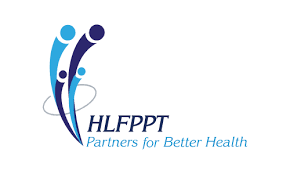













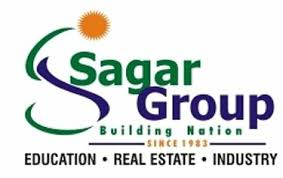

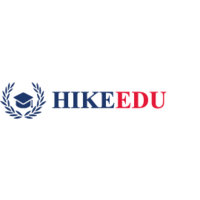


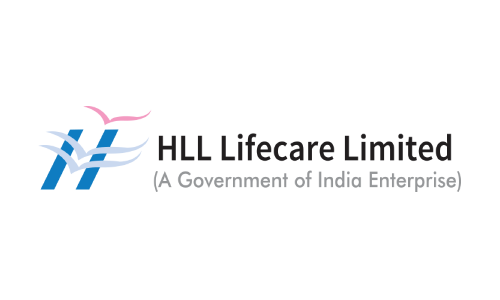


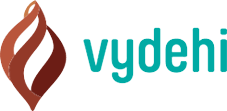


![24[7].ai 24[7].ai](https://adtu.in/files/247ai.jpg)


.jpg)





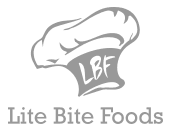

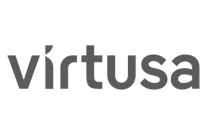



"I am a BBA student of 3rd semester. I hail from Bhutan. I vow that I am having a great experience i...
"AdtU is amazing. I am a BBA student of 2019-22 batch and I am just grateful for the amount of oppor...
Let us be grateful to the people and place who makes us happy. They are the charming gardeners whom ...
Currently I am pursuing MBA in Assam Down Town University. MBA is the professional course through wh...
AdtU is a university that focuses on giving knowledge, education and simultaneously making the stude...
The Assam downtown University has been a great learning experience. The university has provided me w...
My experience with AdtU has been splendid one indeed. Little needs to said about its scenic infrastr...
As a student I am very glad that I have got an opportunity to study here in Assam downtown universi...
My name is Sakhyajit Roy. I?m from Tripura. I joined the university on Auguest, 2017 as a student of...
I share immense pleasure to share my post graduate program experience in Assam down town University....
AdtU is a platform where I got golden opportunities to feed my zeal for knowledge through the dynami...
I am fortunate to get an opportunity to study here in Assam Downtown University. The best thing abou...
Our university is one of the best place for developing ourselves in the field of research and acedem...
ADTU is a university that is very good interms of infrastructure, academics and placements. Our tea...
It is one of best private colleges in North East India, it also provides a good environment for ed...
ADTU is a good University which provides the students with best quality lectures and ensures comfort...
The environment of Assam downtown university is very pleasant.The department of BMLT is very good a...
The university has all the necessary facilities and amenities for students . The classrooms and the ...
Assam downtown University is well recognised all over india. In the ongoing pandemic situation it ha...








